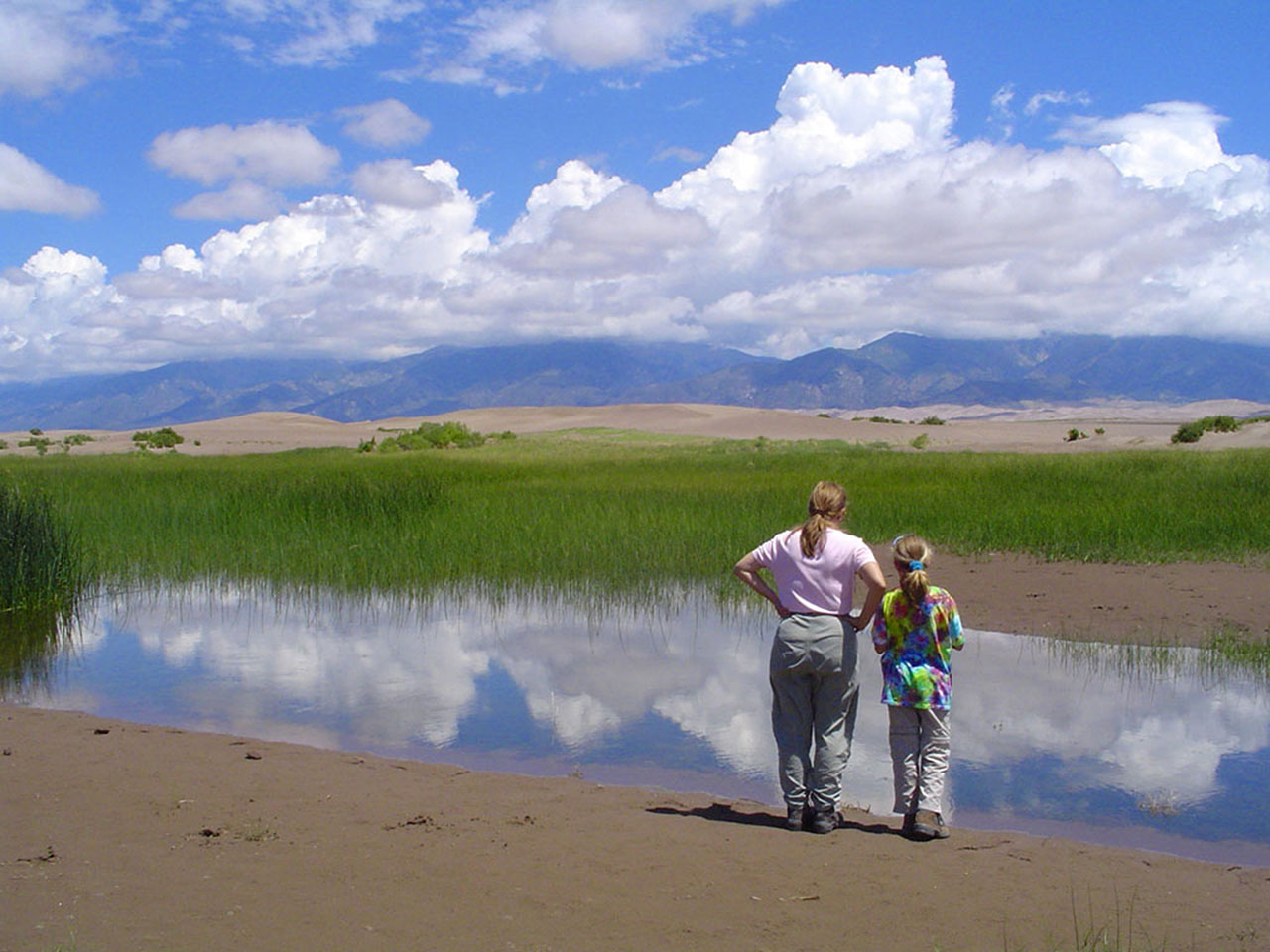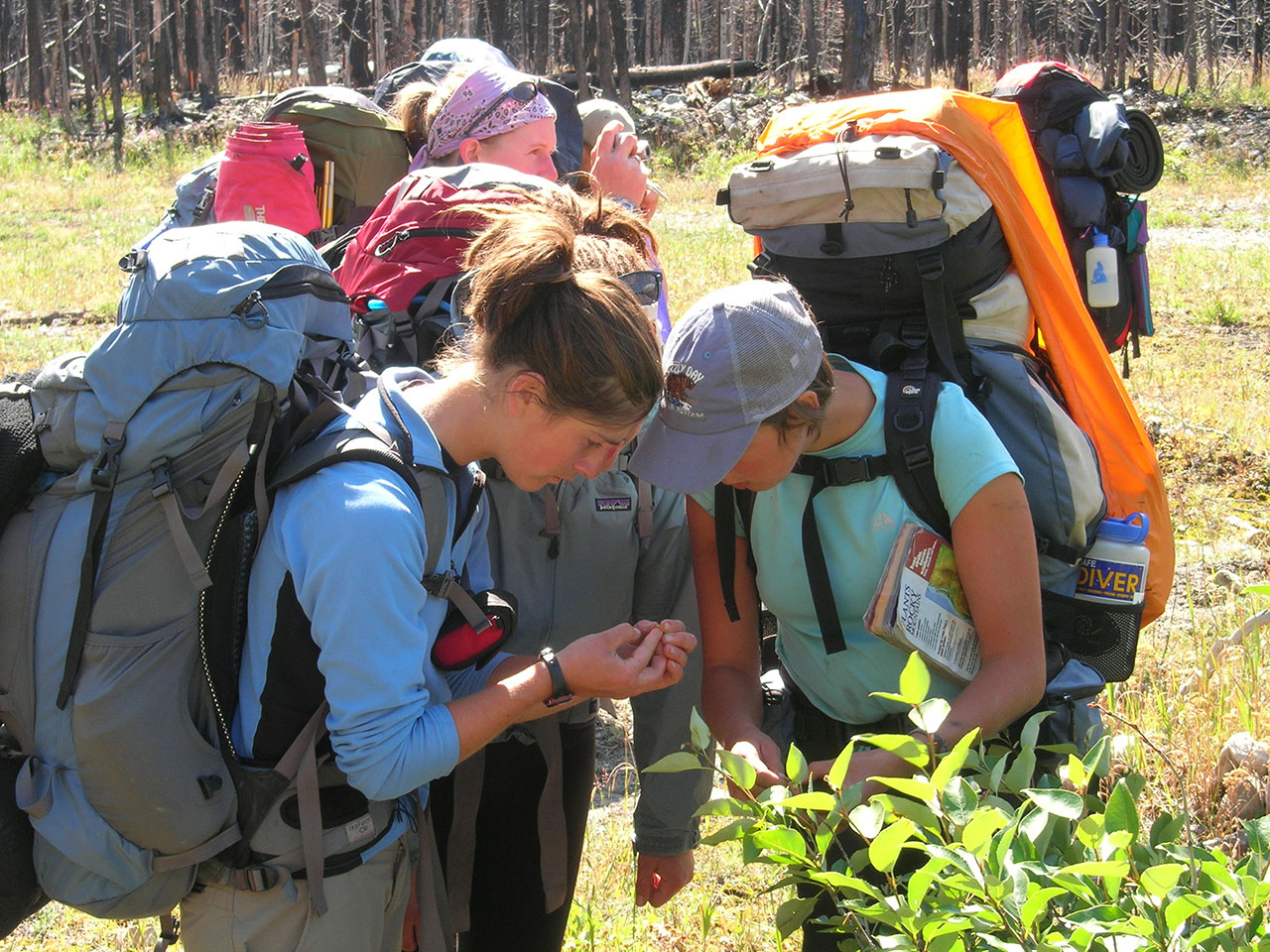Education
Educational Benefits of Wilderness
Wilderness is a living classroom from which knowledge about ourselves and our world can be learned. Colleges, universities, and youth organizations use wilderness to teach ecosystem stewardship as well as science, literature, art, history, civics, and other subjects. Although wilderness is valuable as an instructional example for education that takes place outside of wilderness, it also provides a setting for experiential learning, including field trips, student research and development of recreation-related skills such as navigation, outdoor-living, scouting, tracking, and survival skills.
Natural History Primers

The protected, relatively-untouched ecosystems of wilderness areas make for outstanding instructional opportunities for science classes from the elementary to the post-secondary levels. Whether it's a graduate thesis focused on glacial processes in alpine backcountry or a third-grade fieldtrip to learn basic ecosystem concepts along a forest-wilderness trail, these are incomparable classrooms.
Personal Growth and Treatment Programs
Some institutions also use wilderness experiences to facilitate personal growth, therapy, and healing. Personal growth programs, like Outward Bound or WildLink, seek to empower and enlighten participants, while therapy and healing programs, sometimes called wilderness treatment programs, help participants, many of whom are not successful with traditional health services, overcome illness, substance abuse, problematic behaviors, and psychological problems.
Adolescents and young adults are the most frequent participants in these programs that use combinations of challenge, risk, reward, reflection, self-discovery, group and solo expeditions, and team-building and leadership exercises. A 1998 study found that 38 wilderness treatment programs served an estimated 12,000 clients and generated $143 million annually.
Learning a Land Ethic

The educational benefits of wilderness reach beyond achieving personal goals or receiving personal gains as a result of wilderness experiences, however. Wilderness areas also impart a strong sense of the impacts of human behavior on the landscape, offering perspective on ecological responsibilities.
The concept of a "land ethic"—sustainable, responsible stewardship of natural resources and ecosystems informing humanity's action—appears to have been ingrained in many traditional societies for millennia, but was notably formalized by Aldo Leopold in A Sand County Almanac. Given how much more we understand about our reliance on healthy ecological systems since that book's publication, many scientists and resource managers believe the idea is all the more critical.
A sound land ethic can and should be fostered anywhere—every place belongs to an ecosystem, after all. That said, wilderness can provide a particularly memorable and instructive venue for both young and old to learn the complexity and delicacy of natural communities. Ecology primers—the water cycle, food webs, erosion and weathering, etc.—can anchor a nascent land ethic, as can an introduction to the philosophy and history behind wilderness preservation.